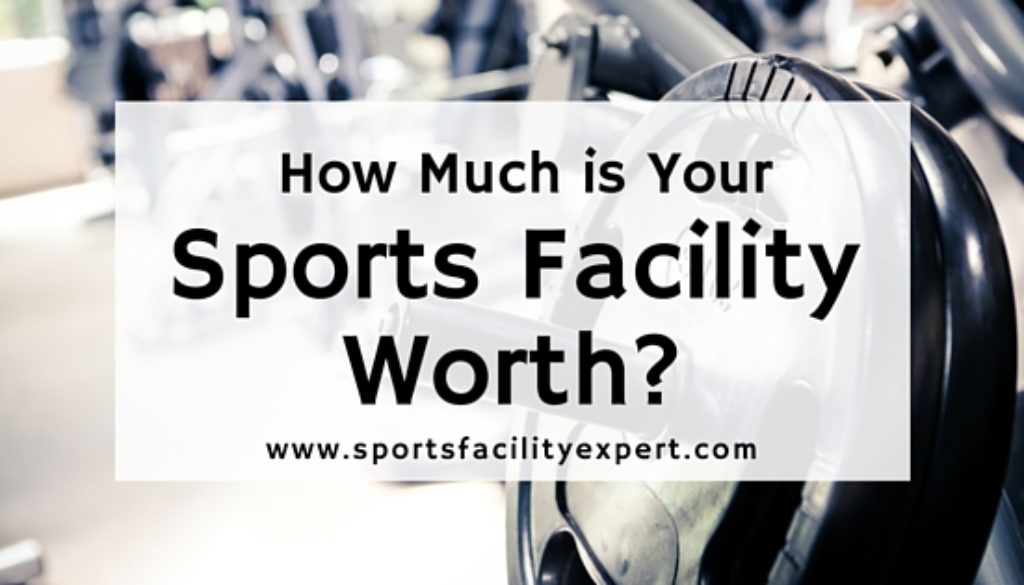How Much is Your Sports Facility Worth?
How much is your sports facility worth?
Not in terms of what it means to you personally or even what it means to your athletes or the community. I’m talking about the dollar value.
Most of us don’t really know. I didn’t know much about it myself until I decided to sell my sports academy.
Even if you aren’t trying to sell your business soon, understanding how it’s valued can help you maximize that value when the time comes — and it will come eventually.
Here’s an overview of what I learned about business valuation when I worked with a broker to sell DNA Sports Center.
First, Determine Which Assets You’re Valuing
Bigger companies or those that have issued stock can sell their business in a “stock sale,” allowing the buyer to essentially step into the shoes of the current owner and purchase the entire business entity, including past and future obligations.
That doesn’t describe most of us sports facility owners. Our businesses are often structured as sole proprietorships or LLCs. So, the sales of our businesses are usually “asset sales” — which means we’re selling our business’ individual assets and often retaining things like liability, outstanding charges and outside contracts.
Assuming yours will be an asset sale, start by specifying which assets you’ll be selling.
First, there’s your physical property, such as your fitness equipment (pitching machines, balls, weights, turf, netting) and office supplies (computers, phones, desks, etc.).
It’s a good idea to keep a full inventory list updated as you make new purchases just for this purpose. Keep in mind that equipment depreciates quickly. By the time I sold my facility, the equipment had depreciated to less than half of its original value.
Non-Physical Assets
Next, consider your business’ non-physical assets. Those may include:
- Your trade name. Through your marketing efforts, you’ve established a name and reputation in the community that’s valuable.
- Your visual assets. This includes your logo (note how much you spent to have it designed and the file types available) and other signs and branded items.
- Your current customer database. This is one of your most valuable assets by far. This is part of why it’s so important to use a good scheduling software to keep your client database updated automatically.
- Your web site. You’ve probably already done the work of designing and setting up your web site, which can be very valuable for the next owner.
- Your internal procedures and programs. If your buyer will be running the business even a little like you did, your program files, forms, your internal procedures can be very worth a lot. This includes use and setup of your scheduling software.
- Your email marketing system and templates. You can give the new owner full access to your past emails, which contain a wealth of data about what your clients responded to. They will have your templates so they won’t have to start fresh.
Come Up With an Asking Price
Your list of assets is just the beginning. To come up with a number value for your business, you’ll need to know the cash your business brings in each year.
The term accountants use for this value is EBITDA, or earnings before interest, taxes, depreciation and amortization. It’s usually the number you see on your business tax return.
A common way to find a selling price for small businesses like ours is to use a multiple of what’s referred to as “seller’s discretionary earnings.”
To get the figure, you take the EBITDA and add back the values of the owners’ pay and perks, possibly adjusting for any aberrations or non-typical practices. You can get your asking price by agreeing to a multiple of that figure. It’s usually somewhere between 1.5x and 3x the seller’s discretionary earnings. The multiple will depend on the business’ annual cash flow and financial documentation. For example, if you’ve kept detailed books and are bringing in hundreds of thousands of dollars each year, you might get 3x the seller’s discretionary earnings figure.
Your physical assets and real estate (if you own it) may be assumed in the seller’s discretionary earnings valuation, or they may be totaled separately. Practices vary by business, and all businesses are different.
To make sure your valuation is in the right range, you can compare your price to those in sales of similar businesses.
If this all sounds a bit complicated to you, you’re not alone. I relied a lot on the expertise of my business broker during this process. In the end, the broker ended up suggesting 2.5x the total annual owner pay of my two partners and me (I agreed not to disclose the exact figures).
Know the Other Costs of Selling
You may have an idea of your business’ value, but don’t get too excited yet. You still have fees and taxes to deal with.
First of all, business brokers don’t come cheap. They collect a commission of the total sale value, just like a real estate agent would for your home sale. Mine charged 10%. Even if you don’t use a broker, you’ll likely need an escrow agent. Another option is to sell your business online using a site like BizBuySell.com. However, you’ll still pay a monthly fee ($60/month or more). Since this is such an important transaction, I think the broker fee is well worth it.
You’ll also have to pay a lawyer to review the contracts that you draw up when it comes time for the purchase.
Then, of course, you’ll pay taxes. There are different rates for the sale of physical assets than for other business assets.
In the end, finding and setting a value for your sports academy or complex can be more of an art than a science. No matter how great of a job you do estimating a fair value, a business is only worth what someone else will pay for it. If you find a buyer that you really like and who you feel comfortable will continue the legacy of your facility, it might be worth lowering your price to make sure your members are happy with the new ownership.
For more insights into your sports facility, book a consultation with our experts.



